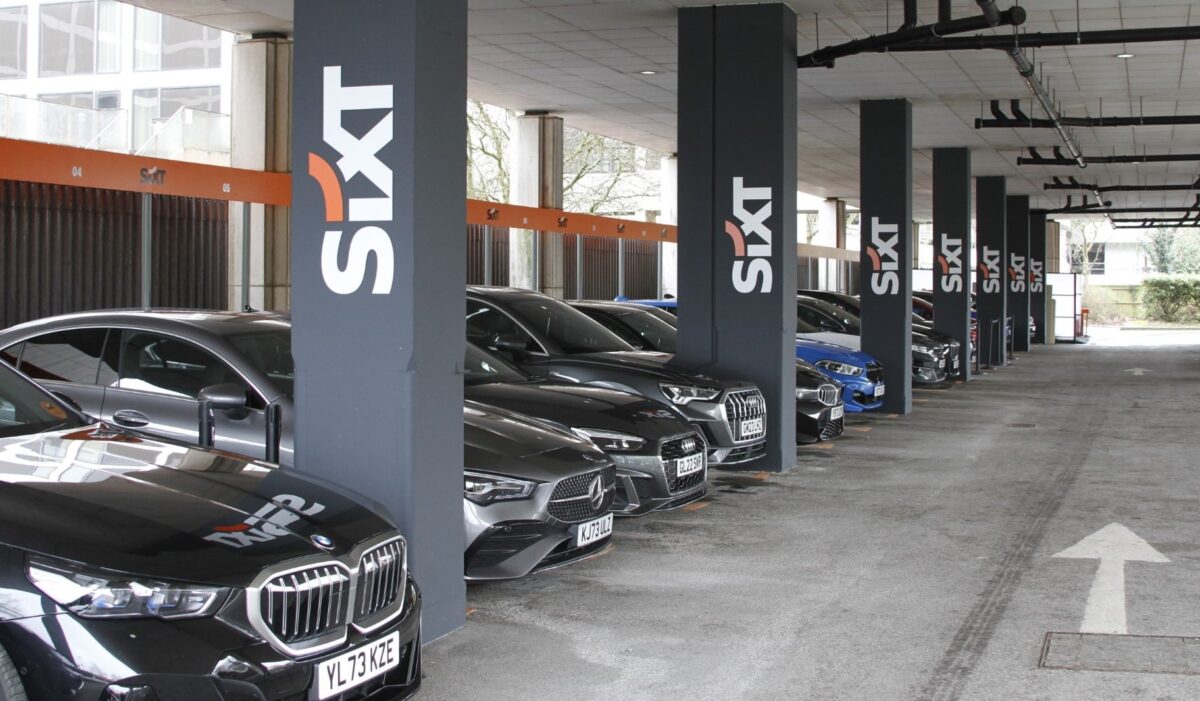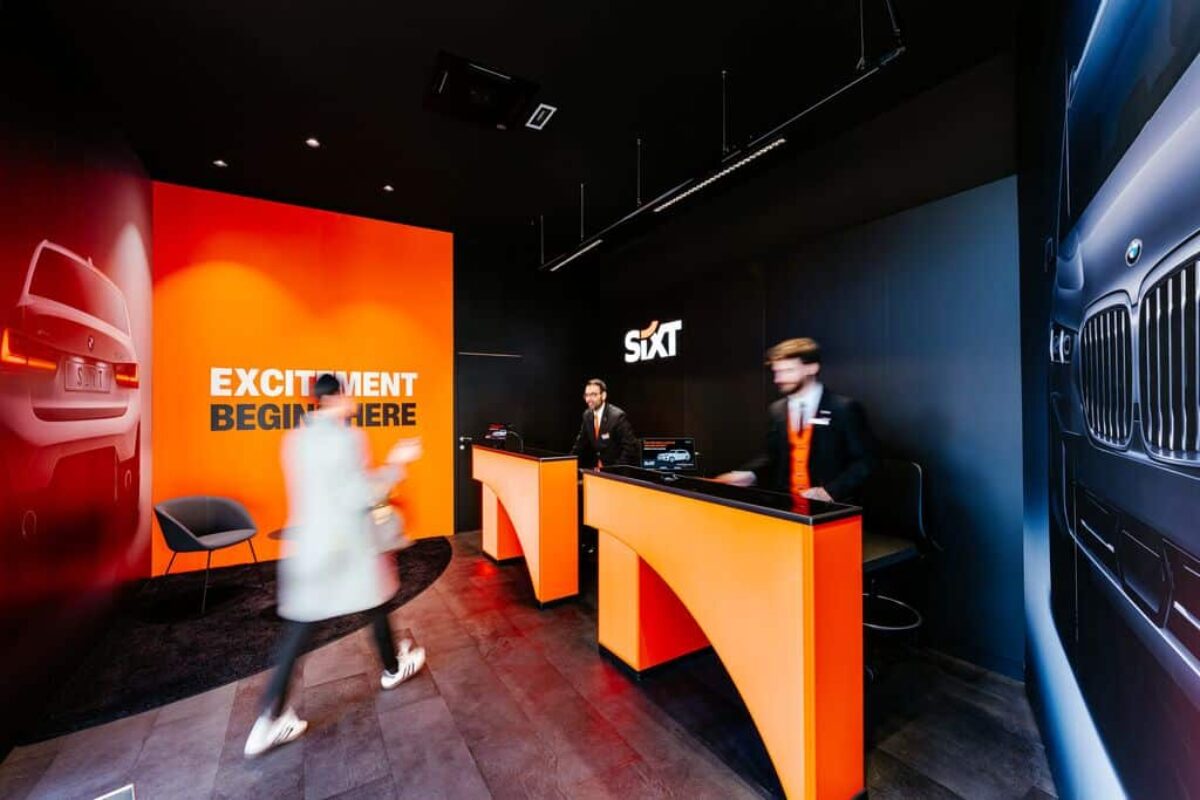
A stalling nation: Brits remain reluctant to challenge car ownership
- 3 out of 5 (61%) Brits drive daily yet 68% are concerned about the rising costs of owning a car, new research unveils
- 2 in 5 (38%) motorists admit to owning a car because they always have, without considering alternatives such as subscriptions or rentals
- Increasing costs for fuel and motor insurance put the total annual cost for running a car at £3,1292
October 2023 – Driving is an important part of Britons daily lives, with 3 out of 5 (61%) of us behind the wheel every day. But while the need for mobility remains high, many haven’t considered alternatives to car ownership despite 7 out of 10 (68%) worried about the rising costs of owning a car, according to data from SIXT UK’s 2023 Mobility Study3.
Close to half (45%) of the nation owns a car because they like to drive, but options such as subscriptions and rentals offer other ways to access a car that don’t involve ownership and the costs that come with it. The study revealed that 35% of UK motorists own a car because they always have, without considering the alternatives. While little to no access to public transport is another factor, with 1 in 5 (20%) people living in remote areas.
Rising costs to run and maintain a car have left over half (54%) of Brits admitting that owning a car is a financial burden. 31% of Brits are now driving less often since the cost-of-living crisis began in a bid to curb spending. Others have cut down on luxuries elsewhere in order to keep driving as usual (12%), notably 1 in 5 Northern Irelanders are going down this route.
Buying petrol as infrequently as possible is another way that the nation is trying to save money. Five years ago, Brits were paying £1.15 per litre4, whereas the average cost for petrol in September was £1.54. Motorists are spending more at the pump now compared to six months ago, 5% to be exact, making the average annual fuel cost £1,225 for a petrol car5. Another consideration is insurance, with average premiums skyrocketing – rising 48% in the last year alone6. Car insurance is costing on average £929, with Londoners paying the most at £1,419 – nearly three times as much as motorists in the south west, who have the lowest premiums at £5767.
Of the Londoners affected by the recent Ultra Low Emission Zone (ULEZ) expansion, half (50%) agree that they have had to reconsider their driving habits. The majority (50%) will simply not drive in the ULEZ area, a fifth (21%) are considering relying on car-sharing or car subscription services, while 12% of respondents have already sold their car. This is supported by data from the Society of Motor Manufacturers and Traders, which revealed that the UK’s used car market rose by 4.1% during the second quarter of this year compared to the same period in 20228, after the ULEZ expansion was announced in November last year.
29% of those affected by the ULEZ will pay the £12.50 daily charge when needed, adding another cost associated with owning a car. TFL reports that the average annual cost of running a car now is £3,1299.
When looking at the most important factors when it comes to making transport choices, convenience (72%) came out as the most critical choice, followed by journey time (56%) and cost (54%) in a close third place. Interestingly, despite the trend towards more sustainable travel, motorists reveal that their environmental footprint is not in their top five considerations when making decisions about transport.
Motorist’s top considerations when making transport choices: 72% convenience, 56% journey time, 54% cost, 39% comfort, 34% safety and 10% environmental footprint.
When it comes to moving away from ownership, 1 in 5 (18%) Londoners reveal they would consider subscribing instead of owning or leasing a car within the next three years. Interestingly, YouGov reported that nearly four in five Brits (78%) simply don’t know what a car subscription service is yet10. SIXT+ allows drivers to pay a monthly fixed price and fuel costs without vehicle purchasing or financing costs, vehicle deprecation or additional charges and, unlike leasing, drivers can cancel on a monthly basis.
Commenting on the findings, Andrew Smith, Managing Director of SIXT UK said: “Owning a car in the UK can be a complicated decision, while the obvious advantages are freedom and flexibility to move around as you choose, motorists are being hit with numerous mounting costs for road tax, insurance, and fuel. Car ownership is just one of the many ways for people to move around and services such as car rental, car sharing, ride hailing, e-scooters and car subscriptions all offer an alternative to the hassle of ownership. The SIXT One app offers all of these transport options as we respond to the changing attitudes and trends around car ownership.”
For more information about SIXT’s products, services, and availability, visit the website here: https://www.sixt.co.uk.
-ENDS-
About SIXT
Sixt SE with its registered office in Pullach near Munich, is a leading international provider of high-quality mobility services. With its products SIXT rent, SIXT share, SIXT ride and SIXT+ on the mobility platform ONE the company offers a uniquely integrated premium mobility service across the fields of vehicle and commercial vehicle rental, car sharing, ride hailing and car subscriptions. The products can be booked, among others, via the SIXT App, which also integrates the services of its renowned mobility partners. SIXT has a presence in more than 100 countries around the globe. The company stands for consistent customer orientation, a lived culture of innovation with strong technological competence, a high proportion of premium vehicles in the fleet and an attractive price-performance ratio. In 2023 Sixt Group achieved consolidated pre-tax earnings of EUR 464.3 million and another significant increase in consolidated revenue to EUR 3.62 billion. Sixt SE has been listed on the Frankfurt Stock Exchange since 1986 (ISIN ordinary share: DE0007231326, ISIN preference share: DE0007231334).

